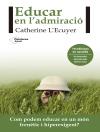The Department for Education (Df E) want to ensure all trainee teachers have an understanding of emotional development and attachment, and so this book presents the key concepts that are essential for training in this area to ensure all teachers are up to date.
Attachment issues and mental health have a huge impact on pupils’ performance and so an understanding of young people’s emotional development is crucial for any teacher. Increasing teachers understanding and skills around emotional development can prevent many long term mental health difficulties in our schools and in our communities.
Key topics such as attachment theory, emotion coaching, tackling disruptive behaviour and the trauma continuum are introduced and explained, with advice and tips for a classroom setting offered throughout. The experiences of practitioners in the field are presented alongside those of researchers, offering a range of diverse perspectives including education, psychology and health. This is an essential text for trainee and practising teachers.
Cuprins
Foreword by Professor Barry Carpenter; Introduction – David Colley (Oxford Brookes University) and Paul Cooper (Brunel University); 1. Models of Emotional Development – David Colley and Paul Cooper; 2. Attachment Behaviour and Learning – Heather Geddes (Caspari, UK); 3. Neuroscience and Emotional Development: the basics explained – Maisie Satchwell-Hirst (Oxford University); 4. Attachment Aware Schools – Janet Rose (Norland College) and Louise Gilbert (Bath Spa University); 6. Emotion Coaching – Licette Gus and Felicia Wood (Kate Cairns Associates); 7. Promoting Resilience in Schools: The importance of both training and reflection for teachers and school staff – Mike Solomon (Tavistock Clinic, London); 8. Understanding the impact of trauma on children in the classroom – Betsy de Thierry (Trauma Recovery Centre); 9. A Psychoanalytic Understanding of Change and Transition in Education – Betsy de Thierry (Tavistock Clinic, London); 10. People meet in a classroom and say ‘hello’: a psychoanalytic perspective on the emotional relationship between the teacher and student – Peter Wilson (Place2Be); 11. Supporting children and young people with social, emotional and mental health difficulties: working in a multi-agency team – Kathy Evans and Erica Pavord (University of South Wales); 12. Emotional Development and Children in Care: the Virtual School perspective – Tony Clifford and Anne-Marie Mc Blain (Virtual Schools Team, Stoke on Trent); 13. Social Pedagogy in the Classroom: supporting children and young people in care -, Emma Black, (South Tyneside Educational Psychology Service), Michael Bettencourt, (Virtual School Head, South Tyneside) and Claire Cameron, (University College London); 14. Including Children with Disorganised Attachment in Mainstream Primary Schools – Maggie Swarbrick (Treatment Foster Care Oregon, Oxford, UK); 15. The importance of professional supervision for all staff in schools – Dave Roberts (Mulberry Bush School, Oxfordshire); 16. Emotional Development and approaches to Classroom Management – Jon Reid (Oxford Brookes University); 17. Disruptive Behaviour and Unsolved Problems – Poppy Nash (York University); 18. Classroom behaviour: finding what works for you – John Visser (Northampton University); 19. Supporting the Emotional Development of Teenagers – Janice Cahill (Pendlebury Centre PRU); 20. Conclusion: Drawing Together the Threads – David Colley and Paul Cooper
Despre autor
Claire Cameron Ph D is Professor of Social Pedagogy and Deputy Director of the Thomas Coram Research Unit at the Institute of Education, University College London. Previously a social worker, her research contributes to the development of the children’s workforce and the quality of life of children and young people attending care and education services, particularly looked after children.












